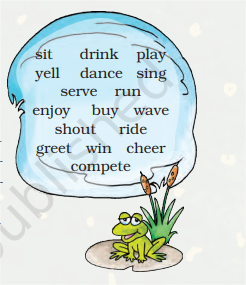Talkative Barber Questions and Answers - Free PDF Download
FAQs on NCERT Solutions For Class 5 English Marigold Chapter 6 Talkative Barber (2025-26)
1. What does this story teach us?
This story is a good example to make us learn that we should not get involved in unnecessary talks. It is better to focus on our work rather than involve in unfruitful talks and irritate others along with wasting our time.
2. Did the barber need the food?
Yes, the barber required the food very much because he had invited his four to five friends at home for a celebration. But he had not prepared any food for them.
3. What made Sultan give gold coins and the food prepared for him to the Barber in Chapter 6 of NCERT Solutions for Class 5 English?
Once the Sultan called a barber, who was very talkative, to shave his head. The barber can not stop talking and complete his work. The barber left the Sultan’s head half-shaved which made the sultan fed up with him. The Sultan was ready to give gold coins and the food prepared for him to the barber to make him shave his head completely. The Class 5 Lesson 6 Question Answer solutions are curated by our expert teachers to help the students in their learning process.
4. Why should I prefer NCERT Solutions for Class 5 English Marigold Chapter 6 over other resources?
Vedantu NCERT Solutions provides many benefits for the students. All these solutions are framed by the best teachers to help the students prepare well for their exams. To make the students understand easily, every chapter has been explained in-depth to make them score high marks. All the solutions are written strictly as per the CBSE's latest syllabus. Vedantu’s NCERT Solutions for Class 5 English Chapter 6 also helps the students to understand how to frame answers in the exam.
5. Which is the best reference guide to score high marks in Class 5 English Chapter 6?
NCERT solutions provided by the Vedantu is the best reference guide for the students to score high marks. Vedantu’s expert faculty have framed the solutions in a clear and precise manner based on the CBSE latest syllabus. Every question present in the textbook is explained in a very simple and easily understandable language. Students in order to score more marks are recommended to practise the solutions on a regular basis.
6. How are Vedantu NCERT Solutions for Class 5 English Marigold Chapter 6 helpful for exam preparation?
Vedantu NCERT Solutions for Class 5 English Chapter 6 provided by the Vedantu are written by the best teachers to help the students in the preparation of their exams. The expert faculty solved all the questions present at the end of the chapter to help the students to solve the questions easily. All the solutions are framed in an easy language making it easier for the students to understand the lesson easily. And these answers are available on Vedantu’s official website (vedantu.com) and mobile app free of cost.
7. How to prepare Chapter 6 of NCERT Solutions for Class 5 English for the exam?
Students should first read the entire chapter thoroughly. Then, students are advised to attempt all the questions given at the end of the chapter in their own words. They should verify their answers using the NCERT solutions provided by the Vedantu. Students should regularly practice these solutions to improve their answer writing skills and increase their speed and time. They should revise the entire chapter at least twice before the exam.
8. How can NCERT Class 5 Lesson 6 Question Answer help improve my English skills?
NCERT Solutions for Class 5 English Chapter 6 not only helps you understand the specific story better but also enhances your overall English language skills by:
Strengthening your reading comprehension abilities
Improving your analytical thinking through discussions on themes and characters
Enhancing your ability to articulate answers effectively in exams
9. What moral or lesson can be learned from "The Talkative Barber"?
The story's moral is that excessive talking can be annoying and counterproductive. It emphasizes the importance of being mindful of others' time and interests and knowing when to listen rather than talk.
10. How do the barber's other customers react to his talkativeness?
The barber's other customers often react with amusement and irritation. While some may find his stories entertaining, many are likely frustrated by the delays caused by his constant talking.
11. What strategies does the barber use to engage his customers in conversation?
The barber uses various strategies to engage his customers in conversation, such as telling interesting or humorous stories, asking personal questions, and making comments about current events. However, his inability to gauge his customers' interest often leads to one-sided conversations.


























